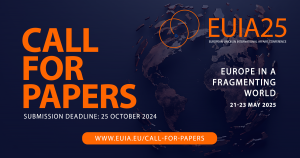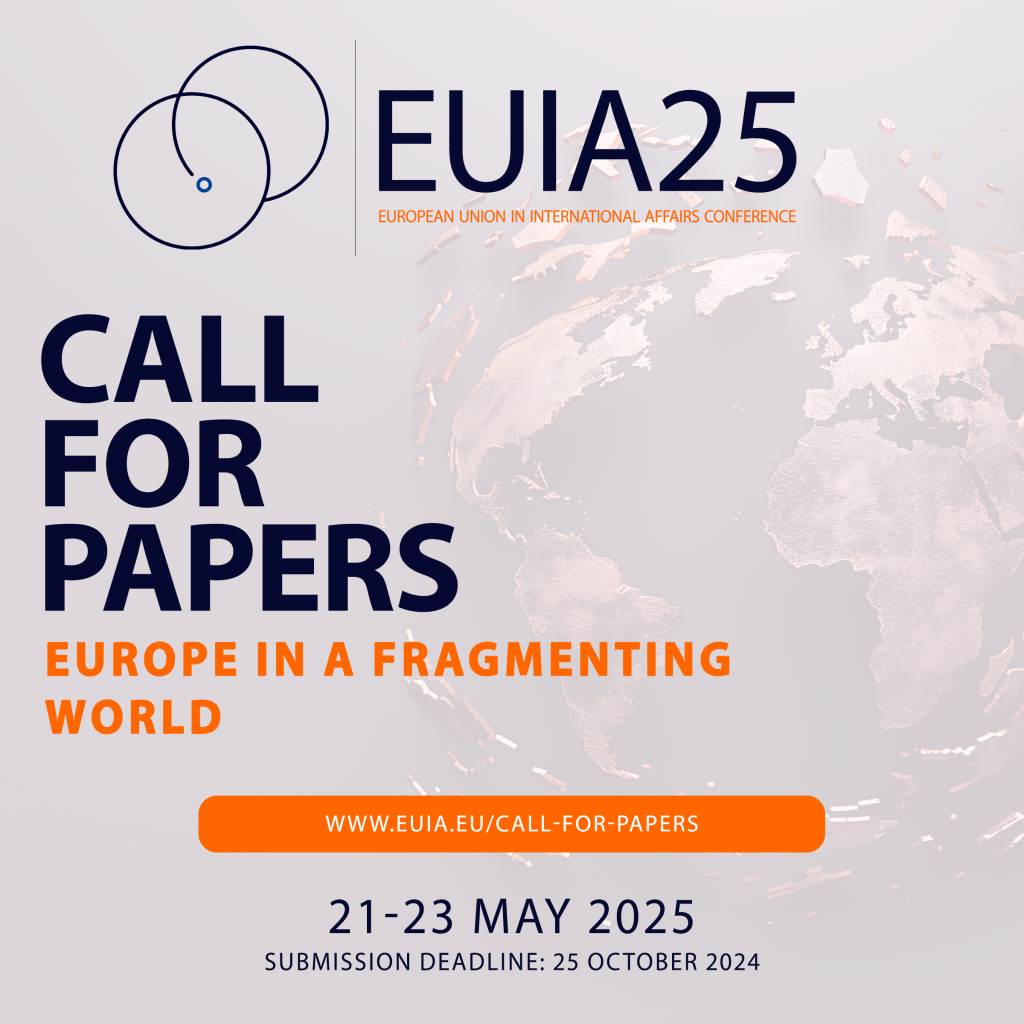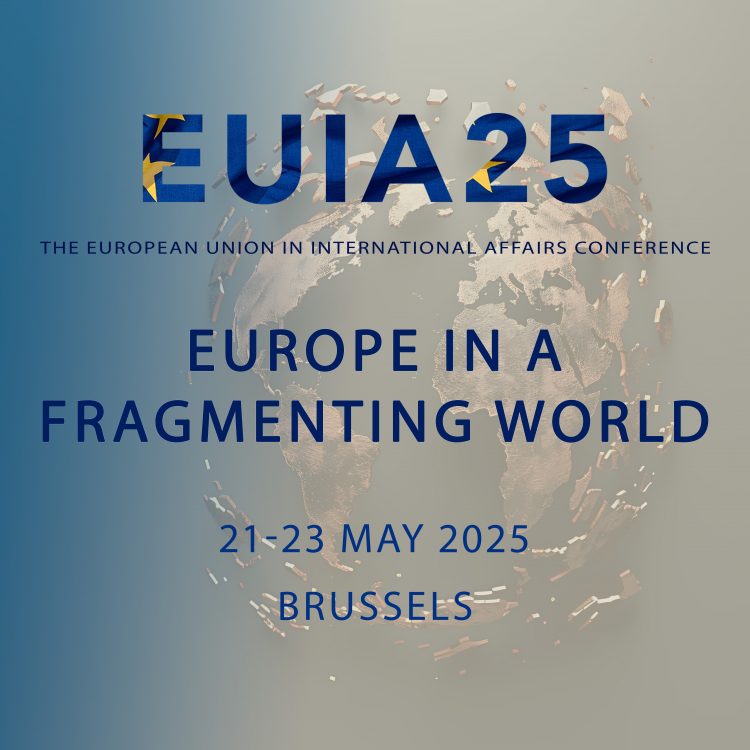About the EUIA25 conference
In 2019, the President of the European Commission, Ursula von der Leyen, launched the concept of a ‘Geopolitical Commission’, which was intended to lead to a more geopolitical stance of Europe in international affairs. This concept, elaborated in a context of growing tensions between the United States and China, has reverberated in European debates and has been tested against multiple and diverse crises, including the Covid-19 pandemic, the war against Ukraine and the Israeli offensive in Gaza following Hamas attacks, as well as the ongoing environmental emergencies.
After the European Parliament elections in June 2024 and a new political leadership taking over, questions persist regarding the role that the EU can claim in a world that is increasingly fragmenting along multiple political, social, ideological as well as ecological and economic lines. More specifically, what does it entail for the EU to think and act more geopolitically? And what are the consequences? Does it make the EU more pragmatic, enhancing scope of action in the world? Or does it contribute to a global polarisation, where the EU is facing more contestation?
The 9th edition of the EUIA conference taking place in Brussels in May 2025 offers a forum to debate the different considerations of the EU’s relations within a fragmenting world in the past five years. To foster an interdisciplinary and international debate, we invite contributions examining European external policy domains, actors and practices, including from the perspective of non-European actors.
In addition to academic panel discussions, the conference will allow for substantive policy dialogue through keynote speeches and roundtables with practitioners. Other programme’s highlights will include networking sessions, awards, and interactive events with leading academic journals in the field.
Call for papers: deadline 25 October 2024

The EUIA 2025 conference calls for submissions from established academics, practitioners, early-career researchers and doctoral candidates. Scholars from non-EU countries are strongly encouraged to submit proposals.
The programme is open to a wide range of disciplines in the social sciences and humanities, as well as to interdisciplinary fields, in order to advance the debate on the EU’s future priorities in the external dimension of its policies. Thematic areas for panels and papers include but are not limited to:
- the EU’s role in diplomacy, multilateral organisations, global governance, and international trade and investment and corresponding value chains;
- the international dimension of EU policy-making and its implementation (such as security, trade, monetary policies, energy, climate, gender, migration, digital governance and space);
- tools of European formal and informal foreign engagement (such as development aid, sanctions and migration arrangements)
- the EU’s relations with its neighbourhood as well as with other regional organisations around the world;
- actions and perspectives of non-European actors towards the EU
The deadline for paper and panel submissions is Friday 25 October 2024, 23:59 CET.




